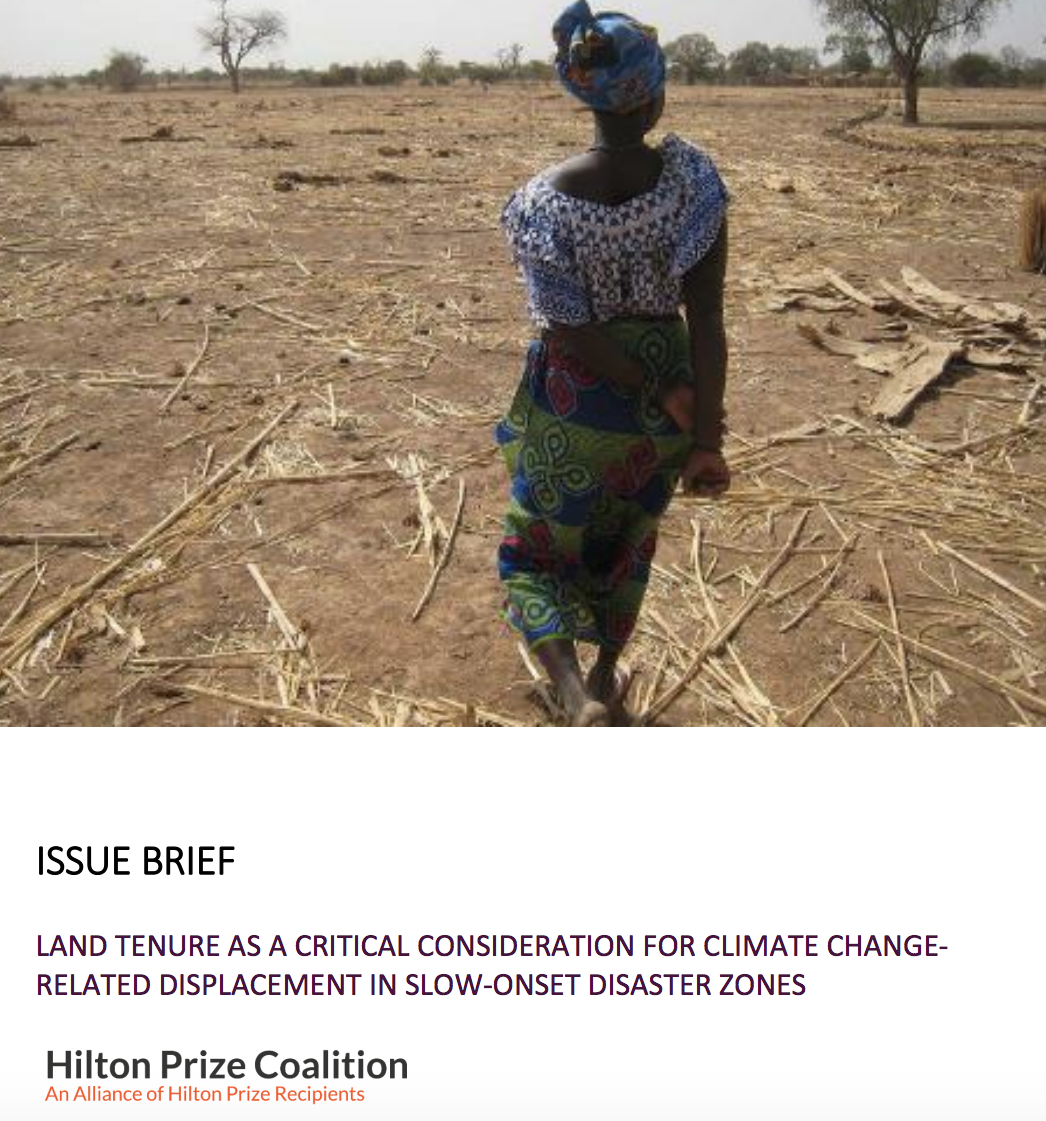About Landesa
Landesa partners with governments and local organizations to ensure that the world’s poorest families have secure rights over the land they till. Founded as the Rural Development Institute, Landesa has helped more than 105 million poor families gain legal control over their land since 1967. When families have secure rights to land, they can invest in their land to sustainably increase their harvests and reap the benefits—improved nutrition, health, and education—for generations.
Resources
Displaying 56 - 60 of 107Issue Brief: Land Tenure As a Critical Consideration for Climate Change-Related Displacement in Slow-Onset Disaster Zones
As climate change impacts intensify, growing rates of natural disasters cause increasing damage to the lives of people across the globe. Climate change-related disasters include both rapid-onset disasters (such as hurricanes) and slow-onset disasters (such as long-term droughts). Given the urgency of rapidonset disasters, it is unsurprising that governments, multi-lateral organizations, donors and others target a large percentage of resources towards rapid-onset events related to climate change.
Gender & Collectively Held Land. Good Practices and Lessons Learned from Six Global Case Studies
Seeks to answer the question, where collective tenure arrangements are either being formalized or supported for the sake of securing the community’s rights to land, what steps are required to strengthen women’s land rights in the process? Synthesizes findings from case studies in China, Ghana, India, the Kyrgyz Republic, Namibia, and Peru that assess interventions to strengthen collective tenure and ensure that both women and men benefit from improved land tenure security.
SYNTHESIS REPORT – GENDER & COLLECTIVELY HELD LAND
GOOD PRACTICES AND LESSONS LEARNED FROM SIX GLOBAL CASE STUDIES
Many studies have shown the benefits to women of secure rights to land: when their rights are secure, their status in the community and within the household can increase, their income can increase, and they and their families are less likely to be underweight or malnourished.
Ghana: Gender and the Land Access and Tenure Security Project
Case study identifies good practices and lessons learned about including gender in a project designed to sensitize communities about the importance of securing land rights, build capacity of customary land secretariats, and provide alternative dispute resolution training to traditional authorities in the Northern Region of Ghana.
Namibia: Good Practices and Lessons Learned for Gender and Communal Land
Focuses on communal land and attempts to better understand the intersection of gender, communal land, and land reform in Namibia. Concentrates on two regions that adopted different approaches. The Oshana region leads the implementation of the nationwide Communal Land Reform Act, 2002, that introduced the registration of customary land rights in communal areas, while the Kavango region declined to participate in this and instead continues to independently administer customary land rights in accordance with its established customary system.







